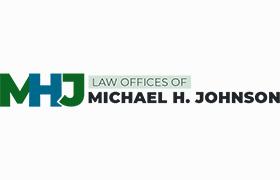Boynton Beach Collection Lawyer, Florida
Sponsored Law Firm
-
 x
x

Click For More Info:
-
Law Offices Of Michael H. Johnson, P.A.
3601 W. Commercial Blvd Suite 31 Fort Lauderdale, FL 33309» view mapBankruptcy & Debt Experienced Legal Guidance
I know how important getting out of debt can be, and I’m committed to providing innovative, effective solutions to help you have a brighter future.
800-773-6441
David Philip Slater
✓ VERIFIED *Status is reviewed annually. For latest information visit hereReal Estate, Litigation, Collection, Wills & Probate
David P. Slater has over 30 years of litigation and general practice experience and handles all accident cases from investigation through trial, inclu... (more)
Lisa Daniels
Foreclosure, Bankruptcy, Collection
Status: In Good Standing *Status is reviewed annually. For latest information visit here
FREE CONSULTATION
CONTACTRobert Cordel Gindel
Civil Rights, Credit & Debt, Bankruptcy, Collection
Status: In Good Standing *Status is reviewed annually. For latest information visit here Licensed: 25 Years
Gregory Scott Tendrich
Collection, Securities, Commodities, Arbitration, Dispute Resolution
Status: In Good Standing *Status is reviewed annually. For latest information visit here Licensed: 37 Years
Constantina Alexandrou-Mirabile
Foreclosure, Collection, Litigation, Business
Status: In Good Standing *Status is reviewed annually. For latest information visit here
Tracy Michelle Coffman
Collection, Trade Associations, Civil Rights, Litigation, Commercial Real Estate
Status: In Good Standing *Status is reviewed annually. For latest information visit here
Steven Fender
Collection, Bankruptcy Litigation
Status: In Good Standing *Status is reviewed annually. For latest information visit here
Joel B. Blumberg
Collection, Business Organization, International, Real Estate, Bad Faith Insurance
Status: In Good Standing *Status is reviewed annually. For latest information visit here Licensed: 38 Years
Angelique Amanda Jackson
Contract, Collection, Bankruptcy & Debt, Accident & Injury
Status: In Good Standing *Status is reviewed annually. For latest information visit here Licensed: 15 Years
Matthew H Ginder
Condominiums, Litigation, Trade Associations, Collection
Status: In Good Standing *Status is reviewed annually. For latest information visit here
 Michael Johnson Fort Lauderdale, FL
Michael Johnson Fort Lauderdale, FL AboutLaw Offices Of Michael H. Johnson, P.A.
AboutLaw Offices Of Michael H. Johnson, P.A.
